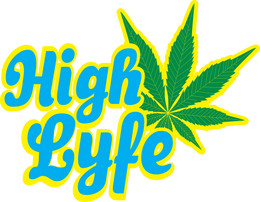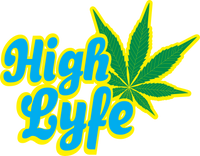What Is The Difference Between Delta 8 THC and Delta 9 THC?
Delta 9 THC is a major cannabinoid that can be found in abundance in cannabis. Extraction is usually fairly cheap and simple as a result. It tends to be derived from marijuana plants specifically.
On the other hand, the extraction of Delta 8 THC requires a great deal more effort. That’s because Delta 8 is a minor cannabinoid. Cannabis produces so little natural Delta 8, it’s not worth the immense effort to extract it.
Luckily, there’s another way to produce Delta 8. It was found that Delta 8 can be synthesized entirely from CBD with the use of solvents. While the conversion process can be a bit pricey, it has made creating Delta 8 products much easier. As a result, most Delta 8 comes from hemp rather than marijuana. It also ensures that their concentrations contain under 0.3% Delta 9 THC, which is the threshold required for federal legality.
Effects
One of the major differences between Delta 8 THC and Delta 9 THC is the effects that they produce. This is typically the deciding factor for most people who are uncertain about which one they want to take.
Delta 9 is considerably more potent than Delta 8. Some believe it to be about twice as strong overall. Side effects are also more considerable with Delta 9. These can include paranoid delusions, mental fog, impaired motor skills, and increased feelings of anxiety.
In comparison, Delta 8 is reported to provide a much easier experience. Most users feel a great sense of calm and clarity. Many have reported a definite “high” to the experience, but not enough to impair the ability to form coherent thoughts or focus on activities. Instead, you simply feel more relaxed and less burdened by stress.
The length of time it takes to feel the effects also separates Delta 8 and Delta 9. Delta 8 works slowly and gradually as it eases users into a more mellow state. Meanwhile, Delta 9’s onset is more rapid and instantaneous.
Products
The two cannabinoids are pretty similar in terms of products. They can be smoked as a flower, inhaled through vaping, or consumed in edible form. There’s also a wide variety of topicals, capsules, tinctures, edibles and other products.
Legality
As you probably know, marijuana is not legal on a federal level within the United States. The push for legality has been largely left up to the individual states. So far 34 states have legalized it for medical or recreational use.
The legal fate of Delta 9 THC has been directly affected as a result. Any amounts over 0.3% are not legal at a federal level, and the state level depends entirely on their local marijuana laws.
However, Delta 8 is still technically legal on a federal level. That's because of the ambiguities of the 2018 Farm Bill, which legalized hemp production. There is nothing within the bill that prohibits deriving Delta 8 from hemp and creating products with the compound.
The psychoactive nature of Delta 8 has prompted a fair number of bans at the state level, though. Currently there are 15 states that restrict the sale and use of Delta 8 products, with another 6 states where legal action is pending.
So while Delta 8 is more widespread at the moment than Delta 9, how long that will last has yet to be determined.

